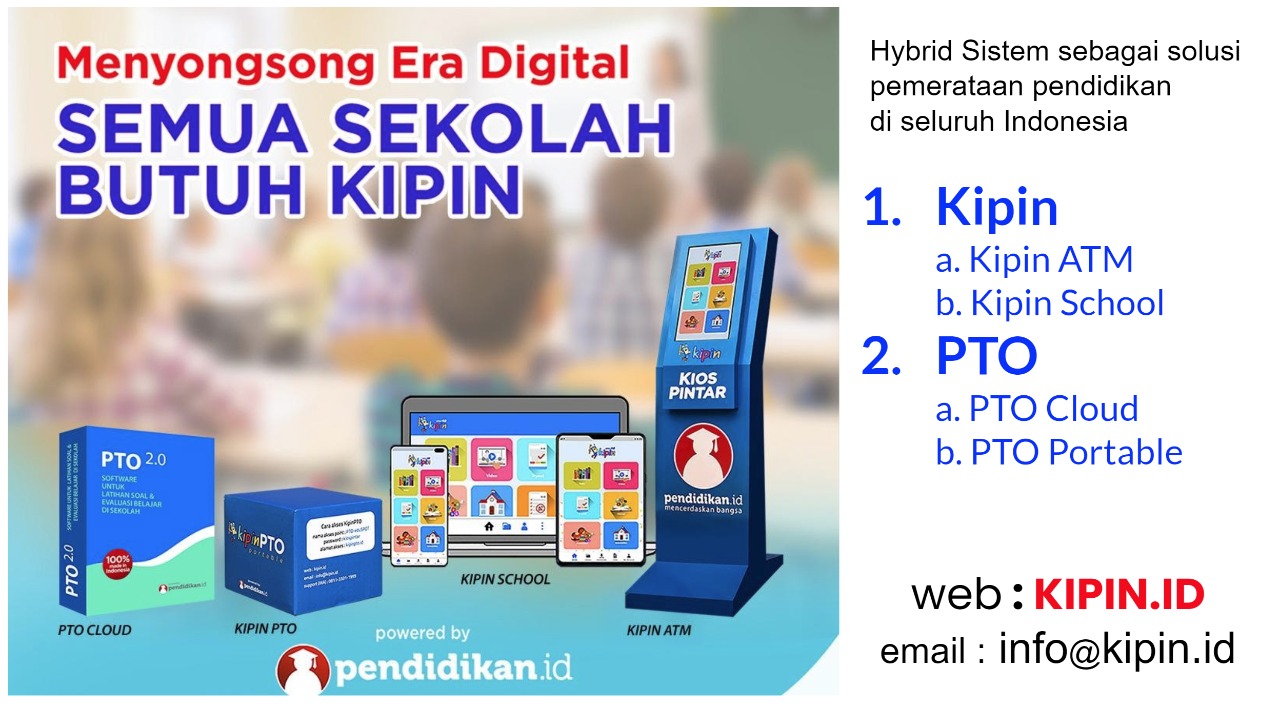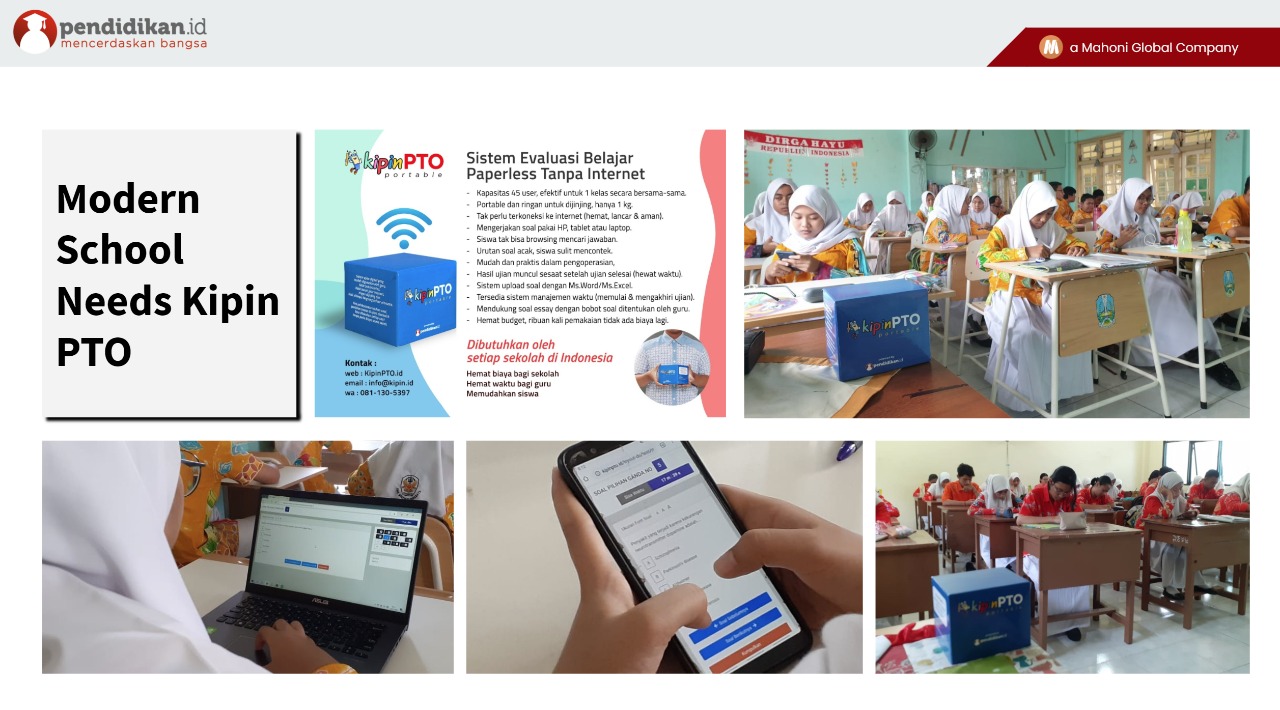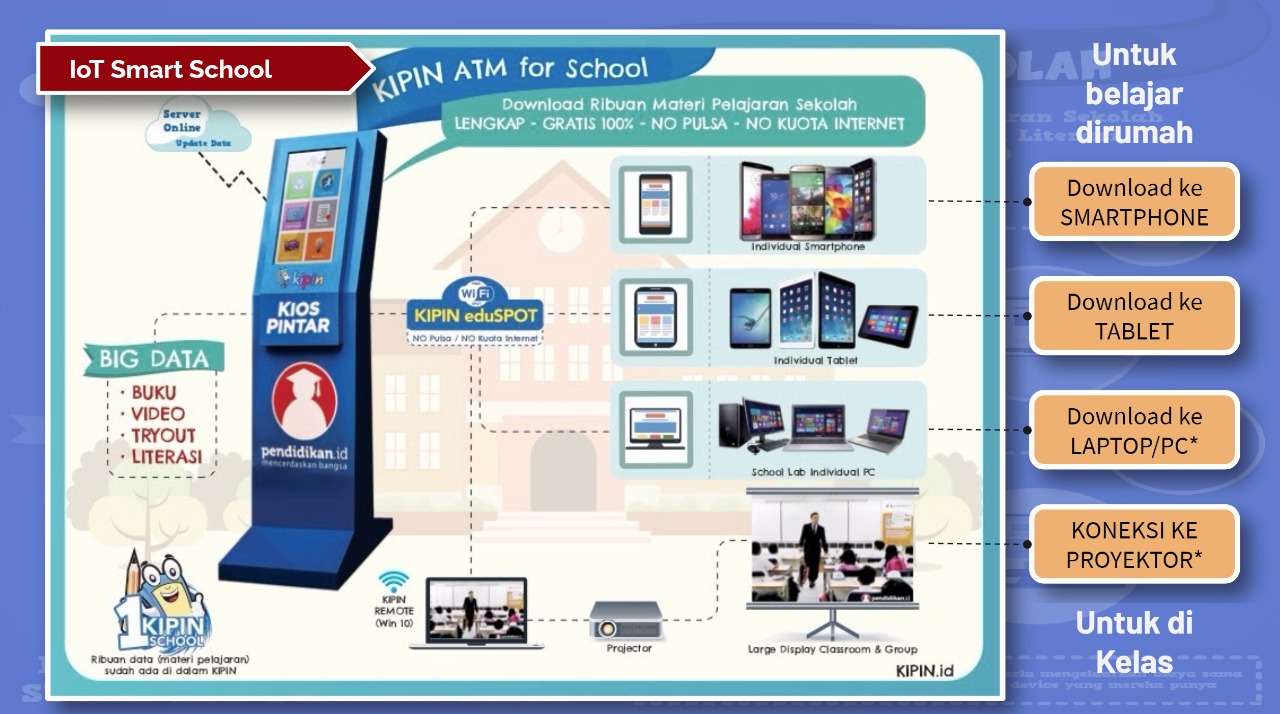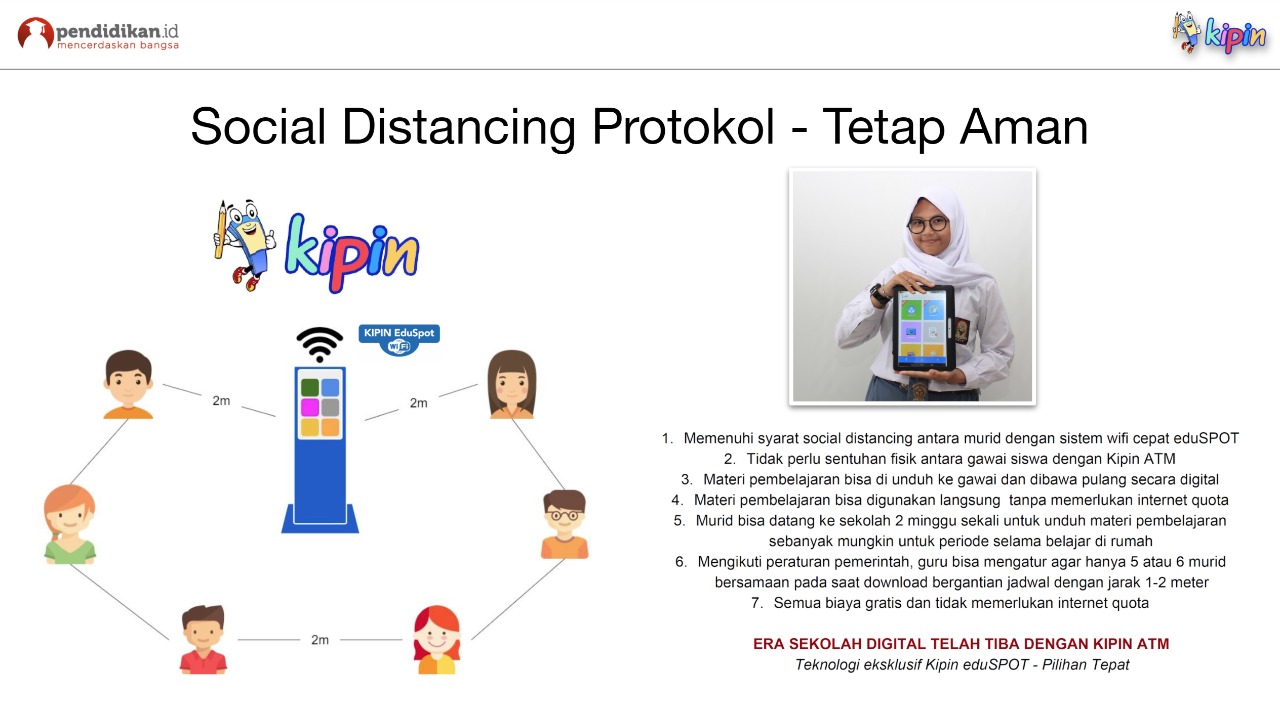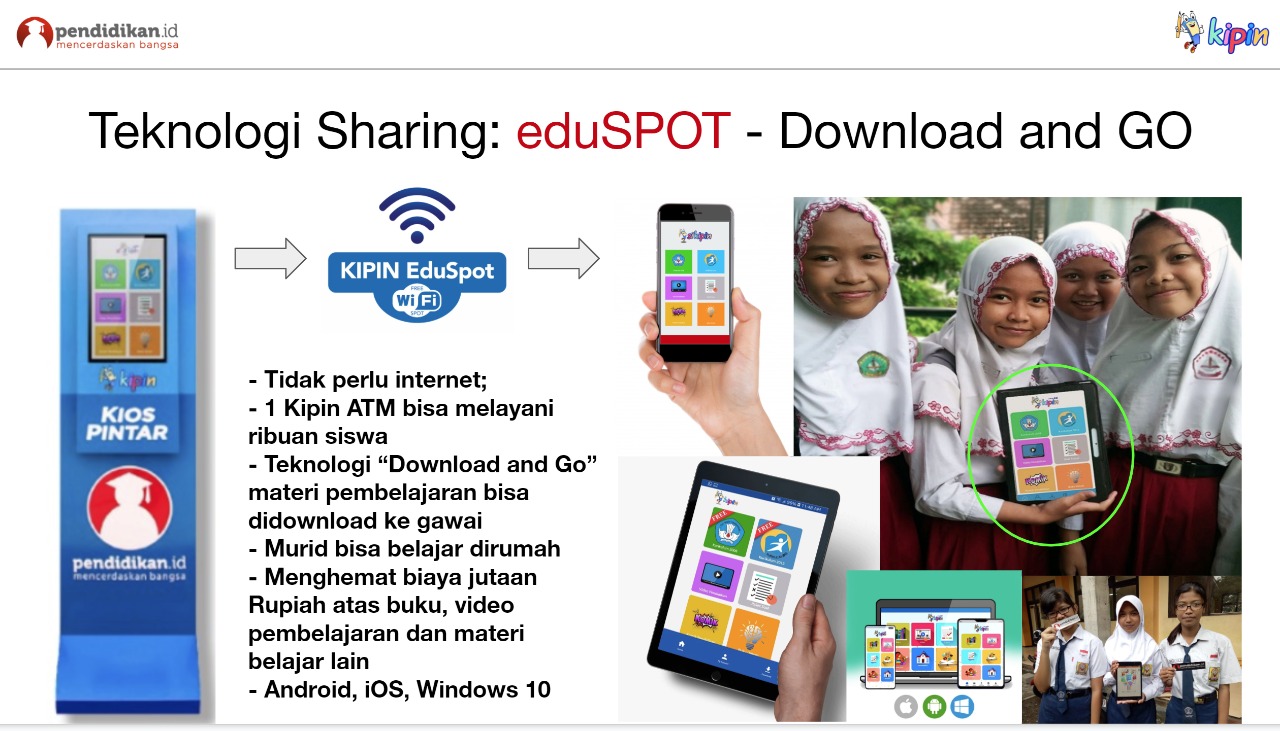Edtech Startup Pendidikan.id to Reach Profitability, Preparing for Series A Round
Previously received seed funding from Farden Impact and The Paradise Group
Edtech startup Pendidikan.id, known for its product Kipin (Smart Kiosks), revealed that it is in the process of raising Series A to launch the company's expansion plan to schools in rural areas and 3T which have difficulty getting internet access. With the B2B2C model and targeting schools as users, it is claimed that company finances have entered the profitability stage.
Pendidikan.id's CEO, Santoso Suratso explained to DailySocial that the company started Kipin to answer the needs of students in remote areas who have had difficulty getting internet access.
The position of the company is slightly different from other edtech players, which mostly create web-based solutions or applications, Kipin is in the form of a kiosk resembling an ATM in which there are materials that can be accessed by students without needing an internet network.
"Kipin ATM answers and provides solutions to all of this, in terms of schools, and the village hall is very happy because it really helps them," he said.
He continued, among the investors at Pendidikan.id there is Garden Impact, a Singapore-based investor focused on investing in commercially sustainable businesses. They entered Pendidikan.id in 2016 for seed investment, then provide additional funding, to be precise in 2018 and 2019.
The funds obtained are used for research and product development. Another investor, there is a local property company The Paradise Group (Indonesian Paradise Property). In the list of Garden Impact portfolio, there is also an edtech company that focuses on finance, DanaDidik.
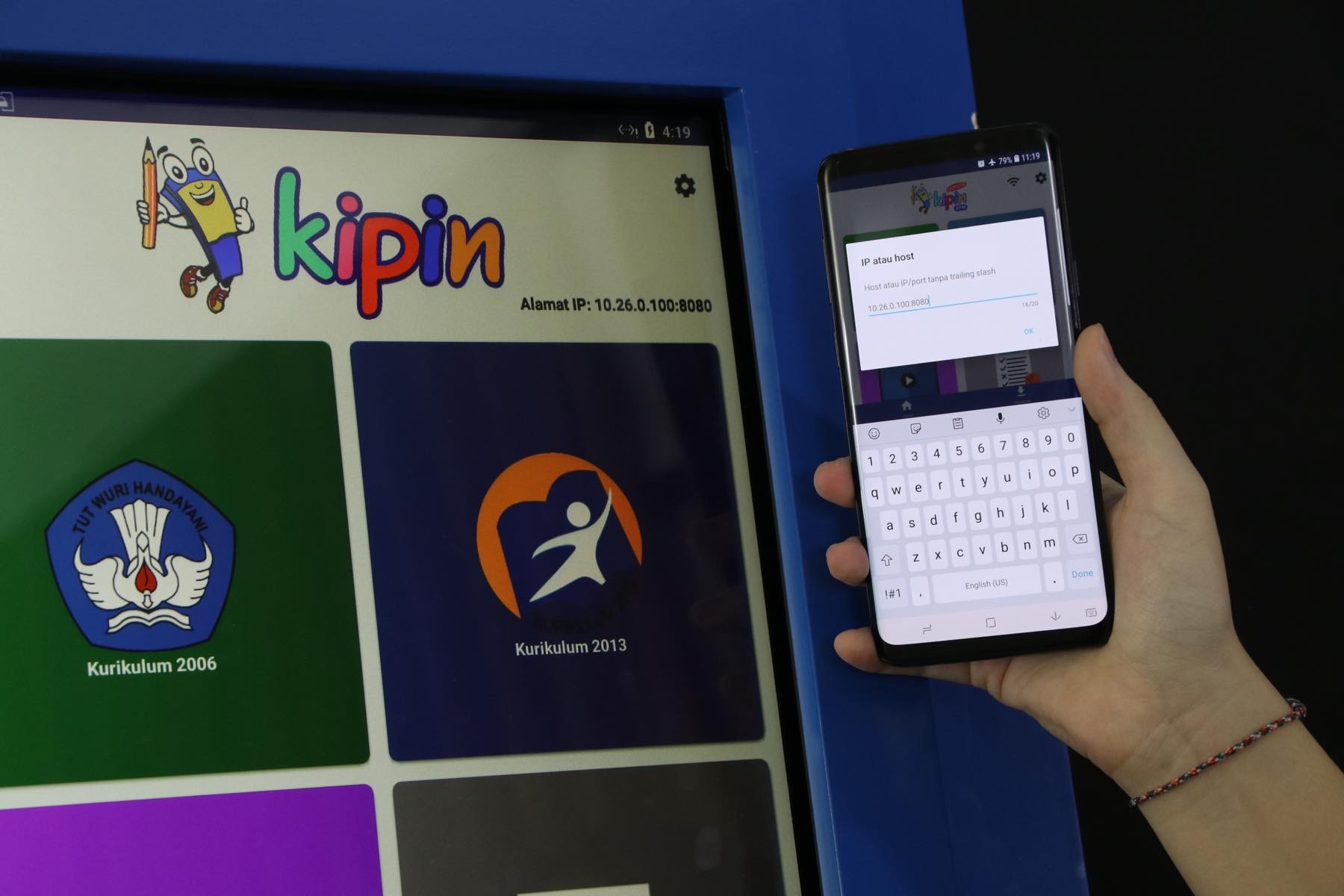 Source: Kipin (Kios Pintar)
Source: Kipin (Kios Pintar)
Kipin updates
The company places Kipin as a learning support infrastructure in the PJJ (Distance Learning) era so that schools have a learning method where students remain in class, even though they are physically absent at school to access the content provided by Kipin. There are more than 2500 school textbooks, videos, practice questions on UNBK-based tryouts, up to 350 comics.
All of this content is already in the machine, so the operation of this machine does not use the internet, only electricity. So, both students and teachers can access and download all of this content to their devices without credit or quota because there is already an 'eduSPOT' wifi network on the machine.
Every month Kipin ATM will be updated automatically, so users will always get the latest subject matter. Additional technology contained in ATMs includes backup power, including backup batteries. If the electricity connection is suddenly cut off, then Kipin ATM can still last several hours.
"Kipin is free for all students because the school is buying it (B2B2C), so children who are less fortunate can still use it. Even if the device does not have a SIM card, it can still run because there is eduSPOT technology at Kipin. One kiosk can serve one school with up to 500 students. "
Santoso continued, "We created this innovation ourselves based on Pak Jokowi's idea. These are all the results of annual research and development, from seven years ago. "
In addition to Kipin ATM, the company also has other products, namely Kipin PTO, a learning evaluation system tool and a paperless exam without internet that is in accordance with the Minimum Competency Assessment (AKM). This AI-powered device helps teachers during PJJ because all exam questions are solved by cellphones, tablets, or laptops and don't need to be connected to the internet.
Equipped with a question upload system with Ms. Word and Ms. Excel, exam results will appear shortly after completion, a time management system is available for starting and ending exams, and supports essay questions with weights determined by the teacher.
"With the AI feature, teachers can save time, have auto-grading, and so on. It's all digital-based, paperless, therefore, it's cost-effective. "
Santoso also said, in this PJJ era, Kipin adoption remains high because teachers who have used Kipin feel happy because there are no differences and already understand how work works.
Currently, the products made by Pendidikan.id have been used by schools in rural areas, including Jambi, Banten, Bandung, Purwokerto, Semarang, Surabaya, Lombok, North Kalimantan, East Kalimantan, Gorontalo, Palu, Kupang, as well as in Jabotabek.
Pendidikan.id is said to have a total team of 100 people. The engineering team at the company is divided into three divisions, namely for educational content development, hardware and design development, and software, web, and applications.
– Original article is in Indonesian, translated by Kristin Siagian
Sign up for our
newsletter
